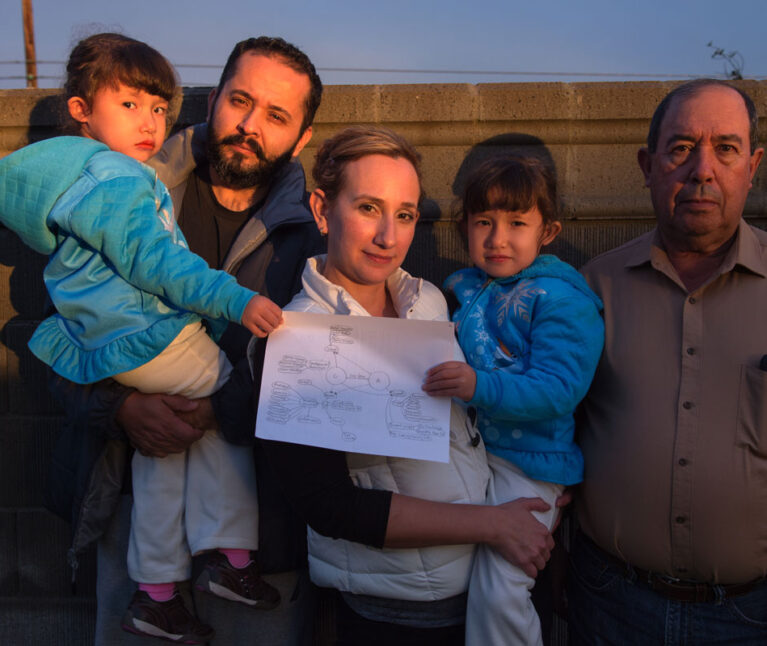Meet Celeste and Alexia from Marysville, CA.
Celeste and Alexia live with 22q deletion syndrome.
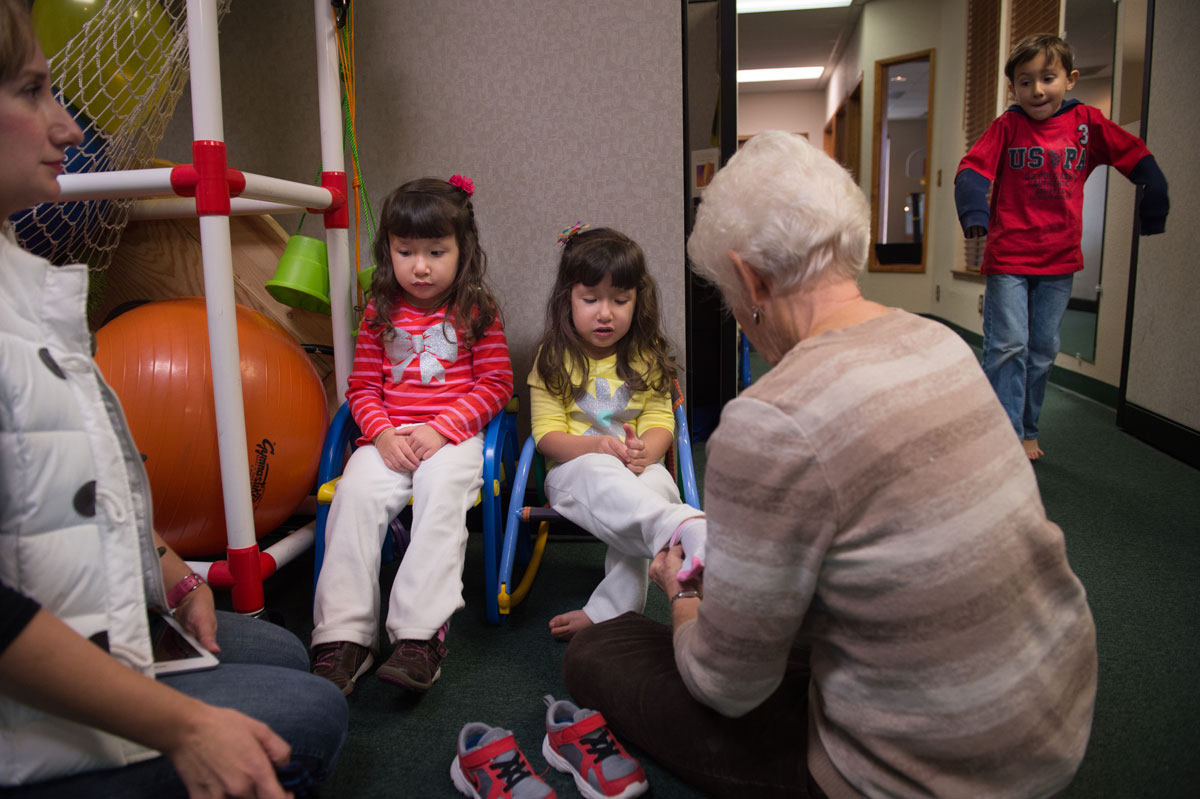
Celeste and Alexia Madrigal were each born without one kidney, and each had heart complications requiring open-heart surgery. Their speech and physical development have been delayed, too. Here, the girls attend physical therapy in Roseville, CA. Their mom, Criss, and brother, Geo, look on. (Photo: Deanne Fitzmaurice)
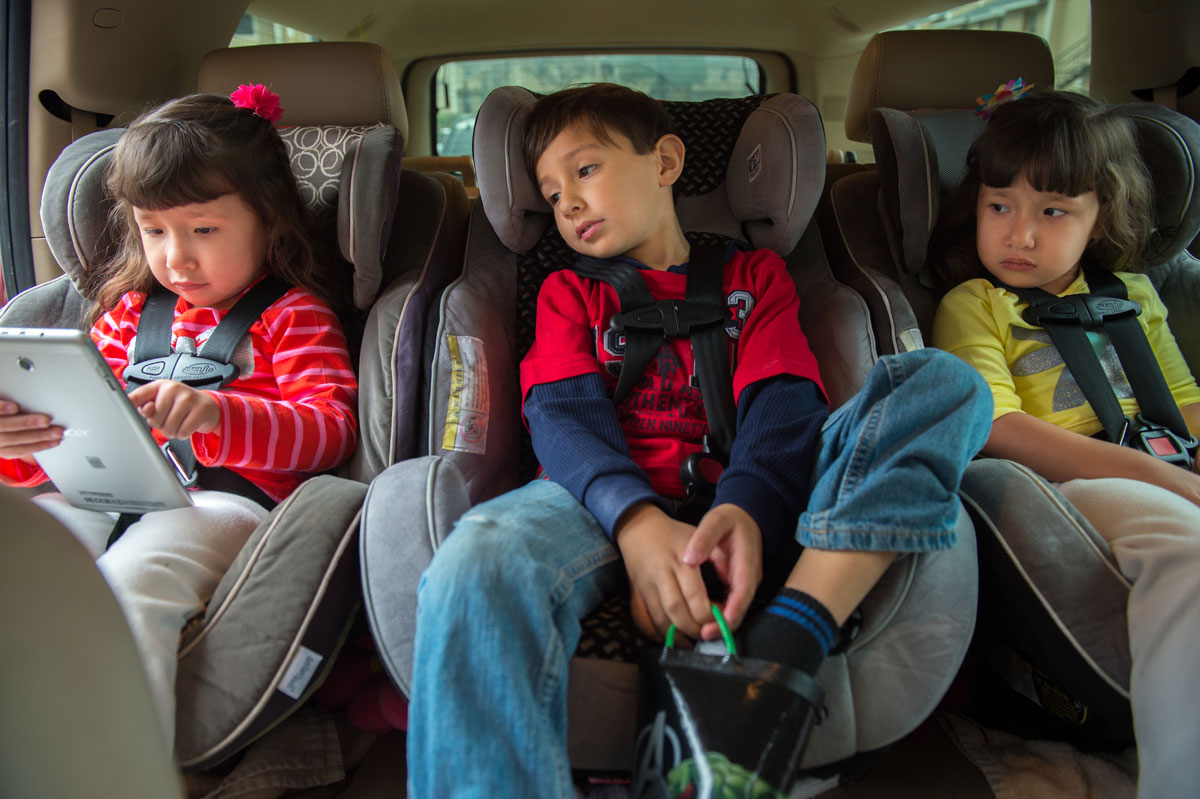
The Madrigals live in a remote area of Marysville, CA. All of the twins’ appointments are at least 45 miles away. Because of the long drives, a typical one-hour appointment takes nearly three hours out of the day. In 2015, Criss logged that the family drove more than 10,000 miles for doctors’ appointments. (Photo: Deanne Fitzmaurice)
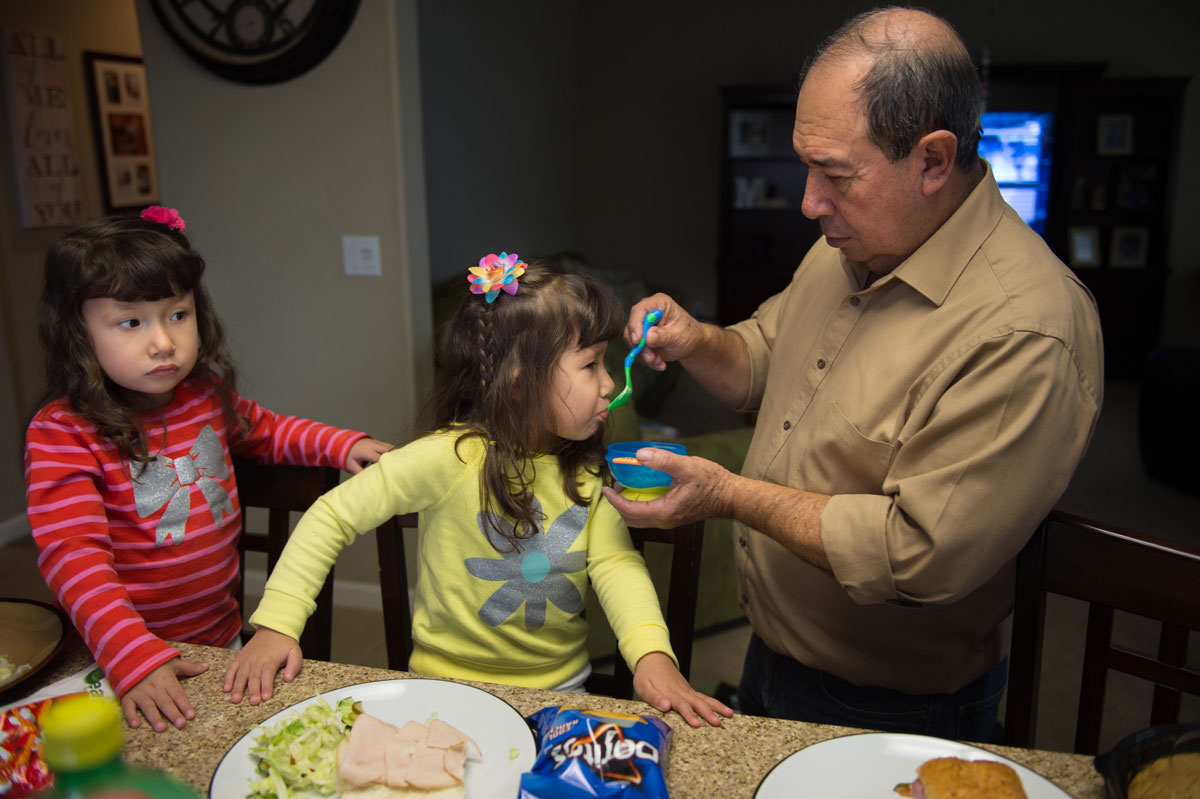
The twins’ grandfather, Daniel, plays a critical role in the girls’ care. Daniel comes to the Madrigal house every morning between 5 and 6 a.m. to get his grandchildren ready for school, drop them off at school, and take the twins to their appointments. “Grandpa has been an angel sent from heaven to help us with the twins,” says their mom, Criss. (Photo: Deanne Fitzmaurice)
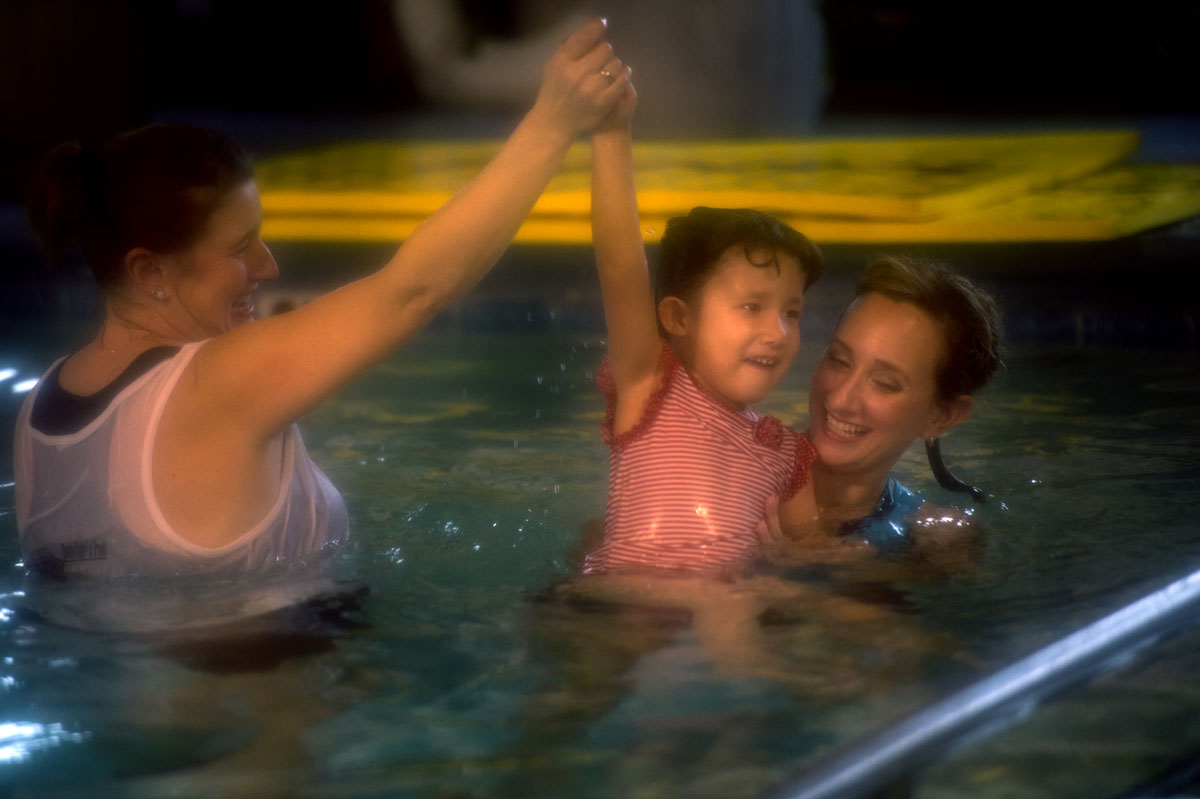
Criss with her daughter, Alexia, and an instructor, at swim therapy. The facility, Butchie’s Pool in Yuba City, had to close in 2016 due to funding difficulties. It had offered swim therapy to adults and children with disabilities for 38 years. (Photo: Deanne Fitzmaurice)
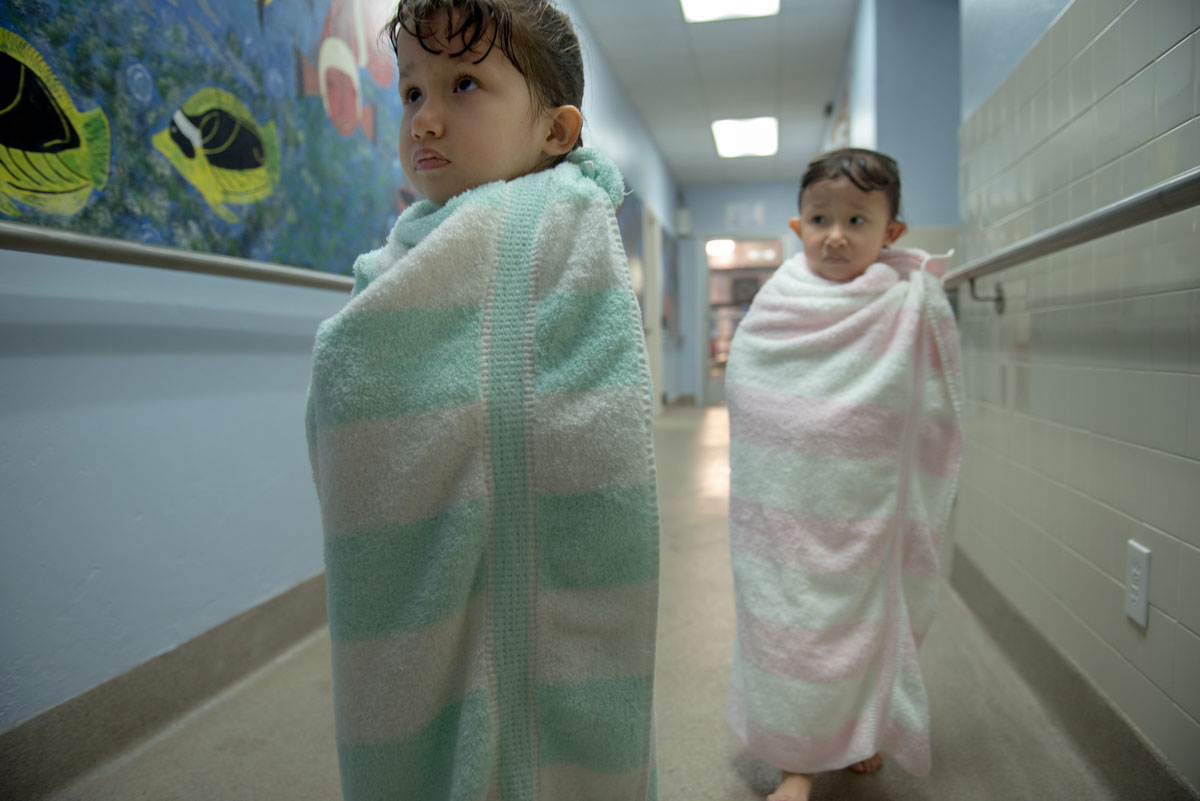
Celeste and Alexia wait for their mom, Criss, at swim therapy in Yuba City, CA. (Photo: Deanne Fitzmaurice)
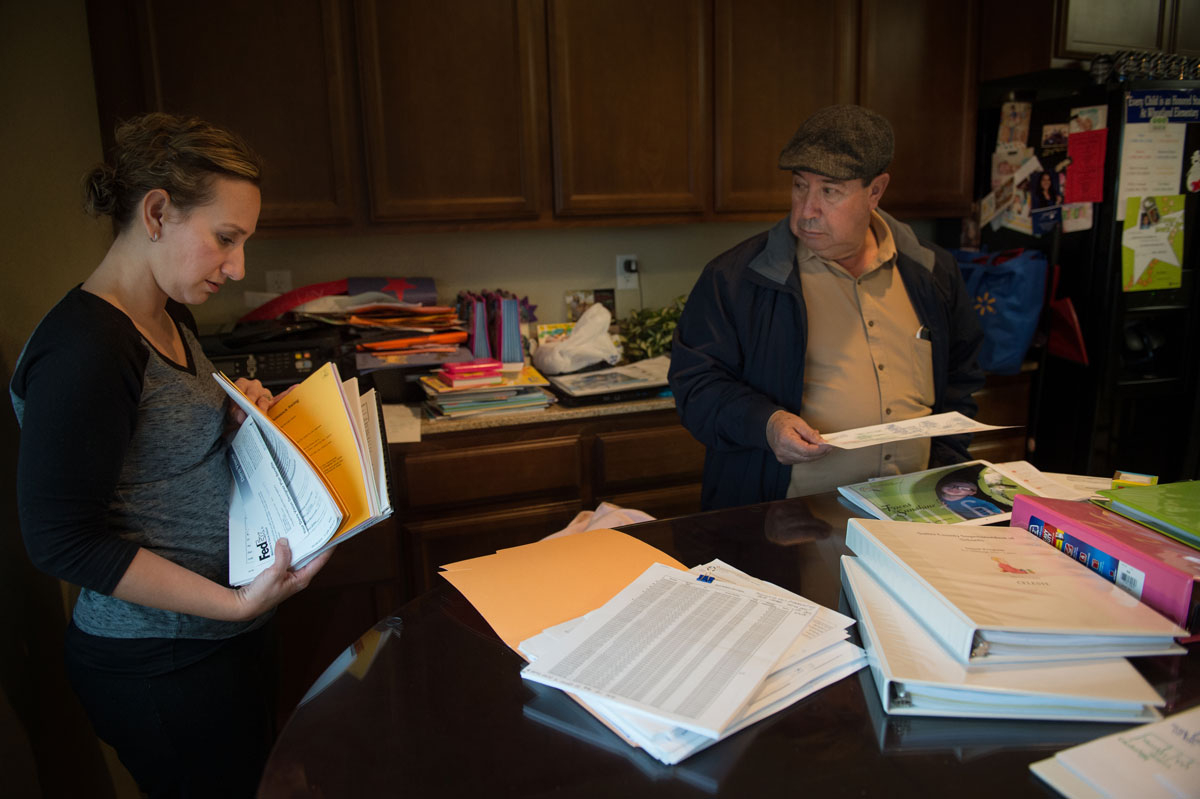
Criss Madrigal and her father, Daniel, sort through paperwork for the twins. The Madrigals have paid $10,000 per year, out of pocket, for the twins’ care since their birth. Now 4 years old, the girls only recently began talking. They would benefit from speech therapy, but the costs are prohibitive. “A lot of services are income-based and we fall right at the point where we don’t qualify, but the services are still too expensive for us,” says Criss. (Photo: Deanne Fitzmaurice)
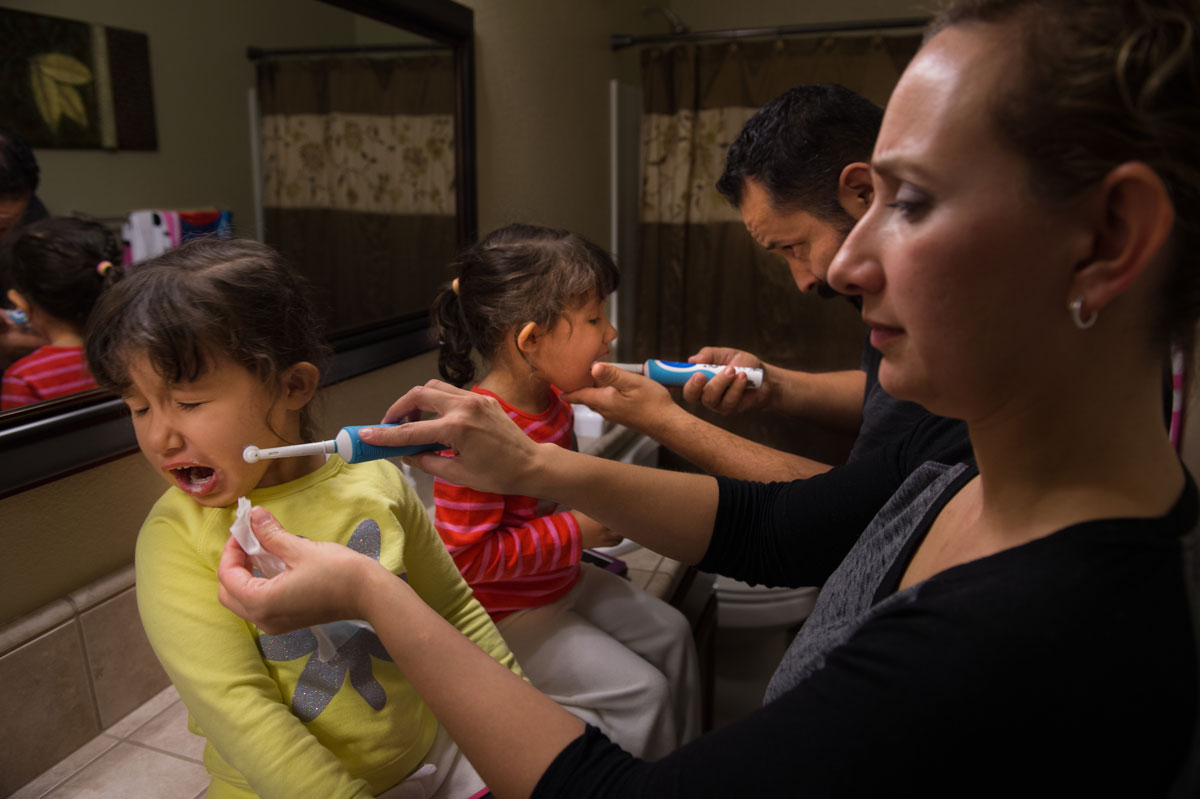
The twins’ condition, 22q deletion syndrome, also makes their teeth susceptible to decay. Celeste has already had a full dental restoration. Parents Americo and Criss must brush the girls’ teeth after every meal. (Photo: Deanne Fitzmaurice)
Celeste and Alexia’s care map
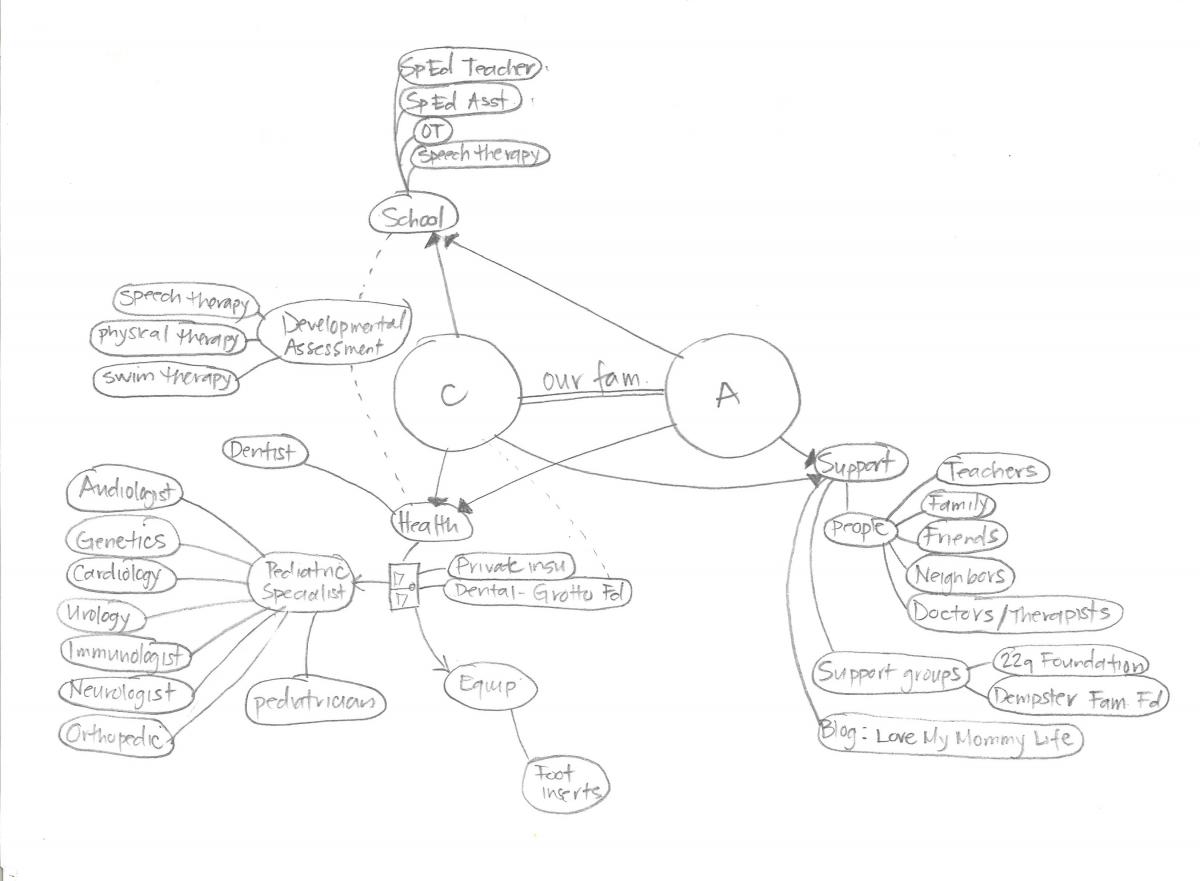
Celeste and Alexia’s “care map,” which illustrates the complicated web of medical care and coverage, as well as educational and support services needed for children with medical complexity and their families.
